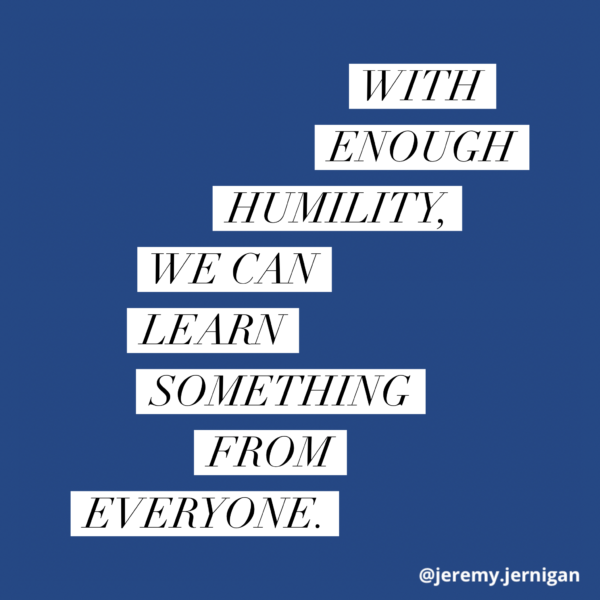Who Can (and Should) We Learn From?
A few weeks ago I spoke at a church and closed with a quote from Sarah Bessey. One of the volunteers in that church loved the quote and was talking about it with others when she decided to Google Sarah’s name to find out more about her. She then had a few questions after realizing Sarah’s theology may be more different from her own than she realized (and was a bit uncomfortable with it).
The pastor of the church relayed this story to me and we had a great discussion that anyone who communicates publicly for a living understands. Every person you quote comes with a risk. I know pastors who don’t share their personal reading list of books to avoid comments from others. Or just watch what happens if a pastor mentions the name Rob Bell (I once got reprimanded by a church member for simply following him on Twitter).
The safest way is to never quote anyone. But this comes at a loss for the community itself. The church then becomes an echo chamber of repeating ideas and reinforcing what is already believed. It’s essentially the same formula for a cult.
The question behind this discussion boils down to this: Who can (and should) we learn from?
How about people who vote differently than you? How about people who don’t share your religious beliefs? How about people you don’t like?
Here’s what I’ve found, with enough humility we can learn something from everyone. Even the bad examples and the people who we might adamantly disagree with on a variety of issues. When we see the world this way, we suddenly allow ourselves virtually unlimited opportunities for growth. This is a great way to live.
If you’re wondering how we reconcile this as Christians, it’s actually really simple. All truth is God’s truth. Wherever you find it. If it’s true, it is of God. The source doesn’t matter nearly as much as we tend to think. If you’re a Christian, you’re even equipped for this kind of exploration. Jesus said that the Holy Spirit “will guide you into all truth” (John 16:13). If we already had all the truth, there would be no reason needed for the Spirit to do this. Apparently, Jesus thought otherwise.
When a communicator quotes someone, there’s no need to add the expectation that it’s an endorsement on everything that person has ever said or done. I don’t even agree with all of the things I’ve said, let alone another person who isn’t me. How freeing it is to release that unnecessary burden and allow the Spirit of God to guide me into discerning and discovering God’s truth all around me. That means you can listen to voices who disagree with you and read books that challenge your thinking rather than make you feel good about what you already believe. In the process, you will hopefully change your mind on a regular basis. That’s a result of growth and is a great sign of maturity.
Who can you learn from today?
With enough humility, we can learn something from everyone. Click To Tweet
Do You Want to Read the Bible Without Falling Behind?
Sign up your email and I’ll send you a PDF to download and use my custom-made reading plan system. There’s no way to fall behind on this system and every day will be different no matter how long you use it!
I’ll send future content directly to your inbox AND you can dive into the Bible like never before.




